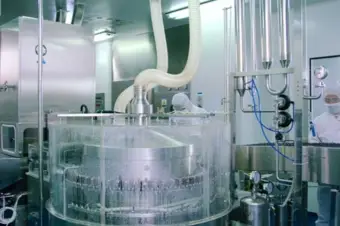Promestriene API Manufacturers & Suppliers
Find, compare & contact
Filters
Custom request?
Type
Production region
Qualifications
Country of origin
Distributor
Produced in:
Established in: 1987
MOQ: 100 g
Employees: 50+

ISO 9001:2015 & SGS audited supplier

One-stop CDMO Solutions for APl and Key intermediates

Specialized in APIs & Pharmaceutical Intermediates for 38 years
+ 0
All certificates
How does it work?
You can register for free as long as you are registering on behalf of a legal company related to the pharmaceutical industry
Search in the search bar the product that you’re looking for. We’ll show you an overview of all available suppliers. Use the filters to select the relevant suppliers only
Have you found interesting suppliers? Then it’s time to contact them. Use the send inquiry button and send them a message. You can send for each product, 3 inquiries per week
Suppliers get notified by Pharmaoffer that they’ve received a new inquiry. They will come back to you with their questions, certificates, and offer in the chat on Pharmaoffer. We will send you an email in case of any news
Does the supplier meet your quality and commercial requirements? Then you can place the order. Just follow the steps of our order module
Looking for Promestriene API 39219-28-8?
- Description:
- Here you will find a list of producers, manufacturers and distributors of Promestriene. You can filter on certificates such as GMP, FDA, CEP, Written Confirmation and more. Send inquiries for free and get in direct contact with the supplier of your choice.
- API | Excipient name:
- Promestriene
- Synonyms:
- Promestriano , Promestrieno , Promestrienum
- Cas Number:
- 39219-28-8
- DrugBank number:
- DB12487
- Unique Ingredient Identifier:
- GXM4PER6WZ
General Description:
Promestriene, identified by CAS number 39219-28-8, is a notable compound with significant therapeutic applications. Promestriene (3-propyl ethyl, 17B-methyl estradiol) has been used in trials studying the prevention of Hypospadias. It is a synthetic estrogen analog, which is used in topical estrogen therapy. Promestriene’s potential for treating vaginal atrophy symptoms associated with aromatase inhibitor treatment would be precluded if its minimal absorption leads to estrogen-like effects on cell proliferation and estrogen-responsive gene expression. The concern with absorbed vaginal estrogens or estrogen analogs is that they activate occult sites of residual breast cancer or negate the tumor suppressive effects of aromatase inhibitor adjuvant therapy. Promestriene has been studied in phase IV of the clinical trial on improvement of hormonal cytology, local and systemic climacteric complaints, as well as its endometrial security in patients with vaginitis atrophic pelvic; organ prolapse and endometrial hyperplasia. It has been also studied in phase III of the clinical trial in the post-operative patients with hypospadias. In addition, promestriene was in phase IV of the clinical trial to study its treatment of patients with vaginosis, bacterial, but that studied was terminated.
Categories:
Promestriene is categorized under the following therapeutic classes: Estradiol Congeners, Estranes, Estrenes, Estrogens, Fused-Ring Compounds, Genito Urinary System and Sex Hormones, Gonadal Hormones, Gonadal Steroid Hormones, Hormones, Hormones, Hormone Substitutes, and Hormone Antagonists, Natural and Semisynthetic Estrogens, Plain, Sex Hormones and Modulators of the Genital System, Steroids. These classifications highlight the drug's diverse therapeutic applications and its importance in treating various conditions.
Promestriene is a type of Genitourinary Agents
Genitourinary agents are a category of pharmaceutical active ingredients (APIs) that are specifically designed to target and treat disorders related to the genitourinary system. The genitourinary system encompasses the organs and structures involved in the production, storage, and elimination of urine, as well as the reproductive organs.
These APIs play a crucial role in the treatment of various genitourinary conditions, including urinary tract infections (UTIs), erectile dysfunction, urinary incontinence, benign prostatic hyperplasia (BPH), and other related disorders. They exert their therapeutic effects by interacting with specific receptors or enzymes in the genitourinary system, regulating physiological processes, and restoring normal function.
Some commonly used genitourinary agents include alpha-blockers, which relax the smooth muscles in the prostate and bladder neck, improving urine flow in patients with BPH. Additionally, phosphodiesterase type 5 inhibitors (PDE5 inhibitors) are widely prescribed for erectile dysfunction, as they enhance blood flow to the penile tissues, facilitating erection.
These APIs are typically formulated into various dosage forms, such as tablets, capsules, creams, gels, or injections, allowing for convenient administration to patients. The development and production of genitourinary agents involve stringent quality control measures and compliance with regulatory guidelines to ensure safety, efficacy, and consistent product performance.
In summary, genitourinary agents form a crucial category of pharmaceutical APIs used to treat a range of disorders affecting the genitourinary system. Their targeted mechanisms of action and diverse dosage forms make them valuable tools in improving genitourinary health and enhancing patients' quality of life.
Promestriene manufacturers | traders | suppliers
We have 1 companies offering Promestriene produced in 0 different countries.
Get in contact with the supplier of your choice:
- Sinoway industrial Co.,Ltd from China, product country of origin China
Let the supplier know whether you are looking for a product with a specific monograph such as EP (Ph. Eur.), USP, JP, BP or another quality. Or, whether you are looking for hydrochloride (HCl), anhydricum, base, micronisatum or a specific purity.
You can use the filters to find high-quality suppliers. For example, you can select GMP, FDA or ISO certified suppliers. Visit our FAQ page or use the chat box in the corner to get more information about Pharmaoffer.









